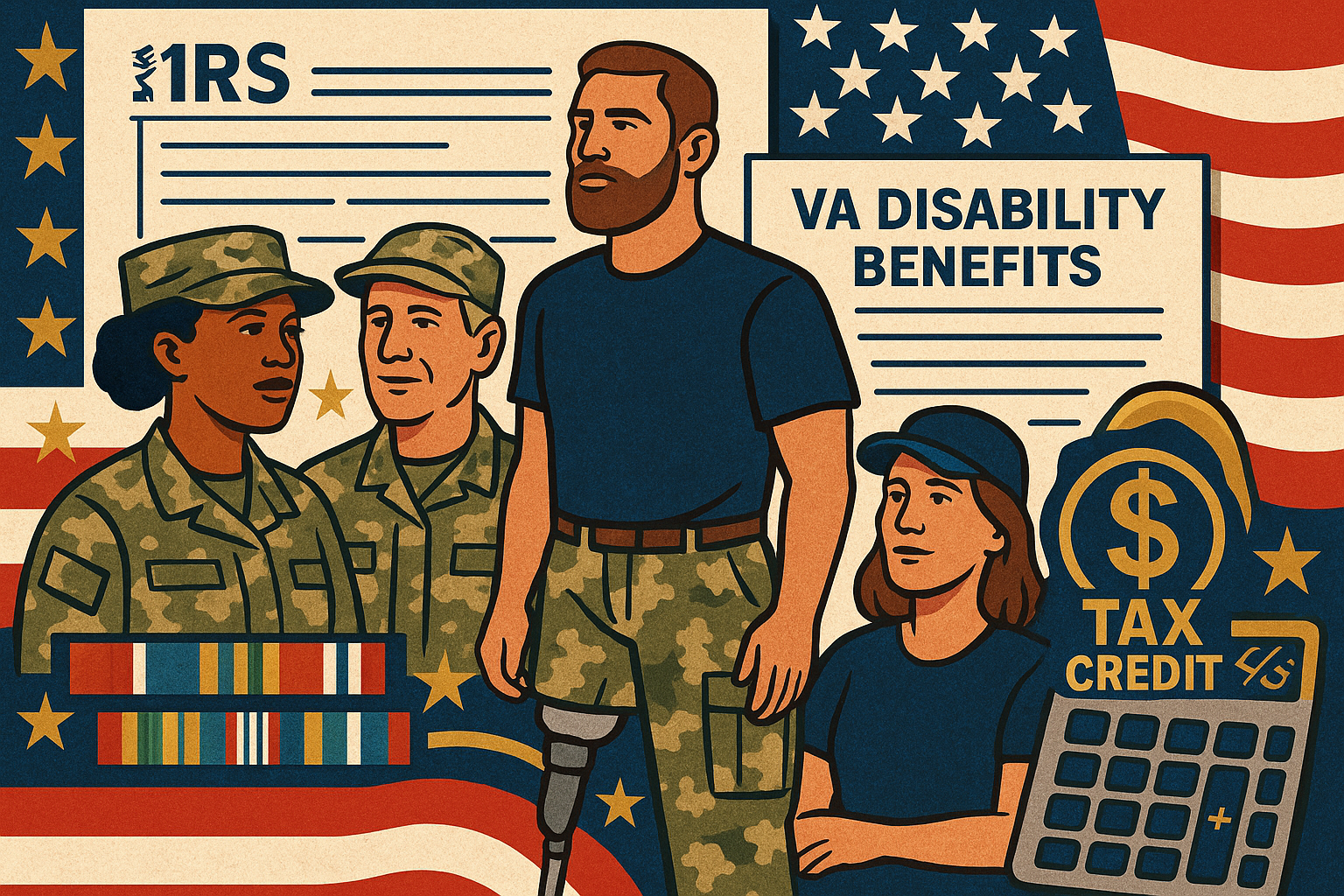 Veterans
VeteransVeterans deserve tax benefits because they have made sacrifices that directly protect the freedoms of the United States. These benefits recognize the hardships of military service, including long deployments and physical or emotional challenges faced after separation. Tax relief ensures veterans keep more of their earned income, which supports long-term financial stability and family security. Offering tax benefits is one way the federal government continues honoring military service beyond active duty years.


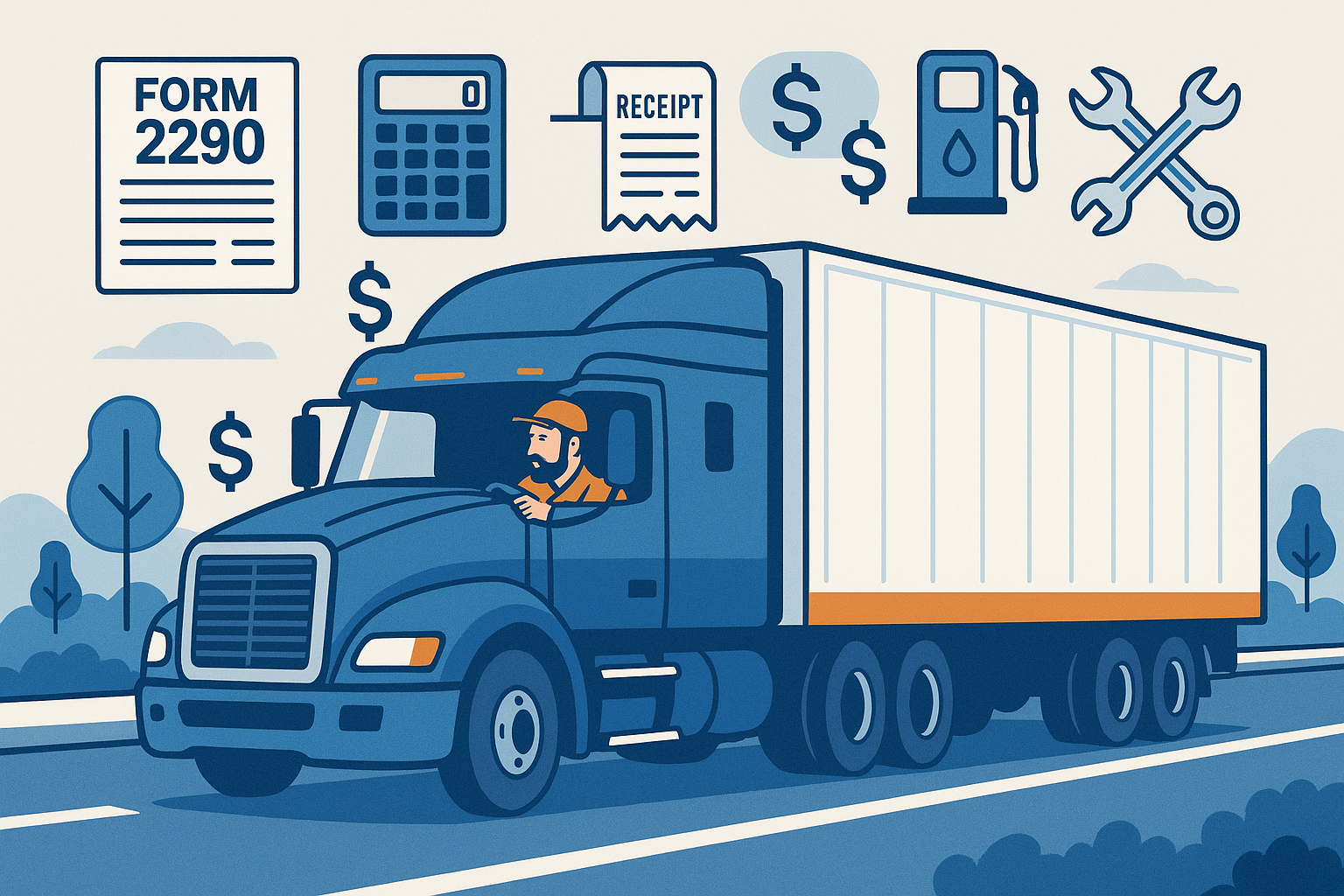 Truck Drivers
Truck DriversDue to their industry's unique nature, truck drivers often face complex tax rules that differ from those of traditional employees. Long hours on the road create special financial considerations that affect income reporting and deductions. Many drivers must track expenses closely to claim legitimate benefits without raising IRS concerns. Understanding these challenges helps drivers avoid penalties and reduce stress during tax season.


 Teachers
TeachersTeachers often cover classroom expenses using their money, buying supplies and resources to support student learning. These out-of-pocket purchases quickly add up, creating financial stress throughout the school year. Many educators do not receive reimbursement from schools or districts, making teacher tax deductions a critical way to recoup some costs.


 Tattoo Artists & Self-Employed Therapists
Tattoo Artists & Self-Employed TherapistsRunning your business gives tattoo artists and therapists independence, but tax responsibility is unavoidable. Self-employed individuals must manage records, receipts, and expenses with accuracy. They must calculate taxable income carefully because underreporting can lead to IRS scrutiny. Unlike employees, they shoulder the full self-employment tax without employer contributions.


 Spanish-Speaking / ITIN Taxpayers
Spanish-Speaking / ITIN TaxpayersITIN taxpayers are essential in maintaining fairness within the United States tax system. They file federal tax returns even without eligibility for a Social Security Number. The IRS uses the Individual Taxpayer Identification Number to track compliance accurately. This ensures taxpayers without SSNs can report income and avoid legal or financial risks.


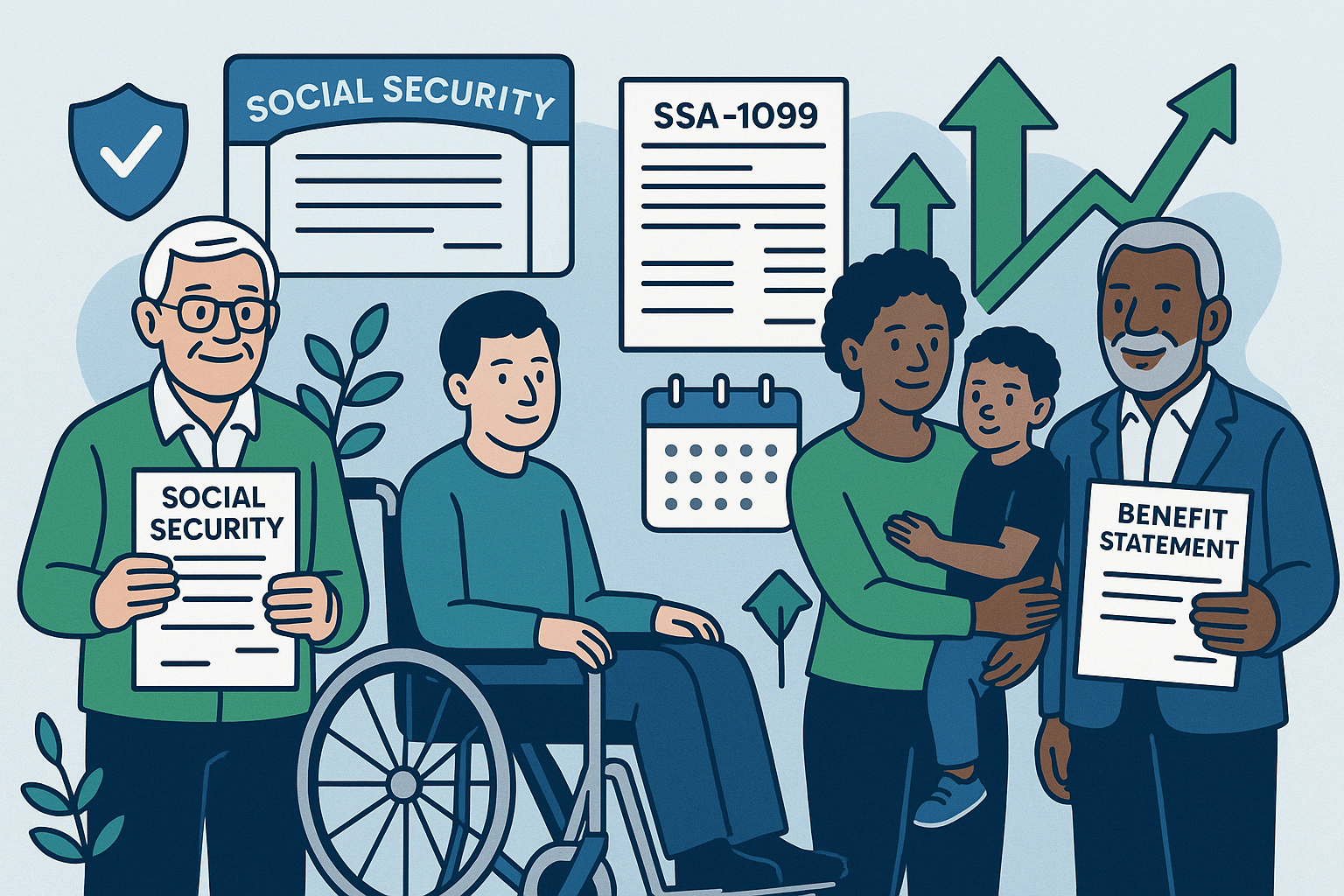 Social Security Recipients
Social Security RecipientsSocial Security provides critical financial support to millions of Americans during retirement, disability, or after a family member’s death. It ensures a consistent income when people stop working or cannot earn due to health conditions. These benefits help cover basic living expenses and reduce financial insecurity. Without Social Security, many households would face significant financial hardship.


 Social Media Influencers & Adult Industry Workers
Social Media Influencers & Adult Industry WorkersThe IRS has started paying closer attention to influencer earnings across all social platforms. Revenue from brand deals, sponsorships, and ad revenue is no longer under the radar. Creators who once ignored taxes now face increased scrutiny from federal auditors. This shift signals that digital entrepreneurship must now align with traditional tax compliance standards.


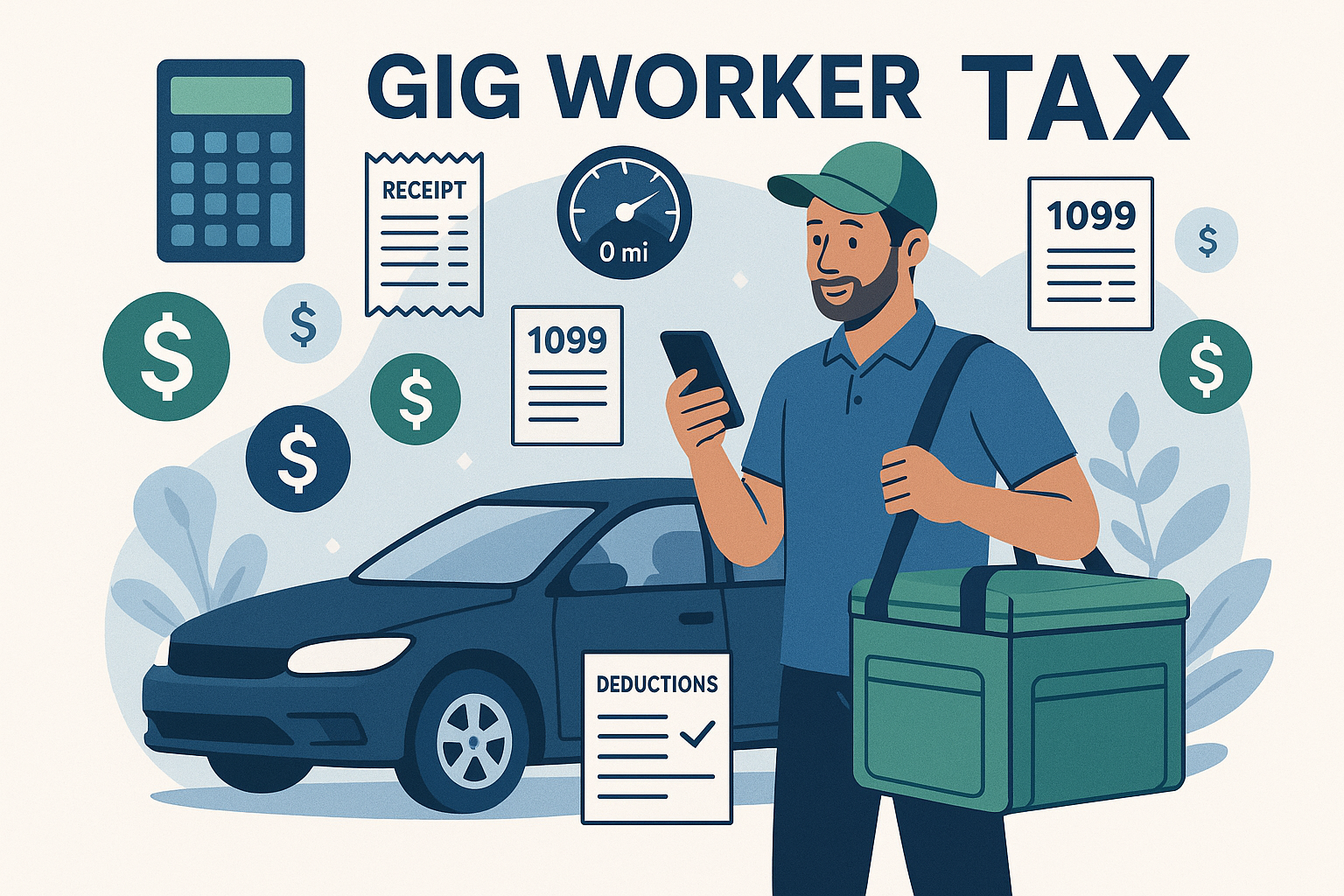 Small Nonprofit Owners
Small Nonprofit OwnersSmall nonprofit owners start organizations every day to serve communities without chasing profit. They often balance limited budgets, volunteer help, and passionate missions. Unlike large institutions, they rarely have full legal or financial teams, which makes understanding IRS rules especially important for their survival.


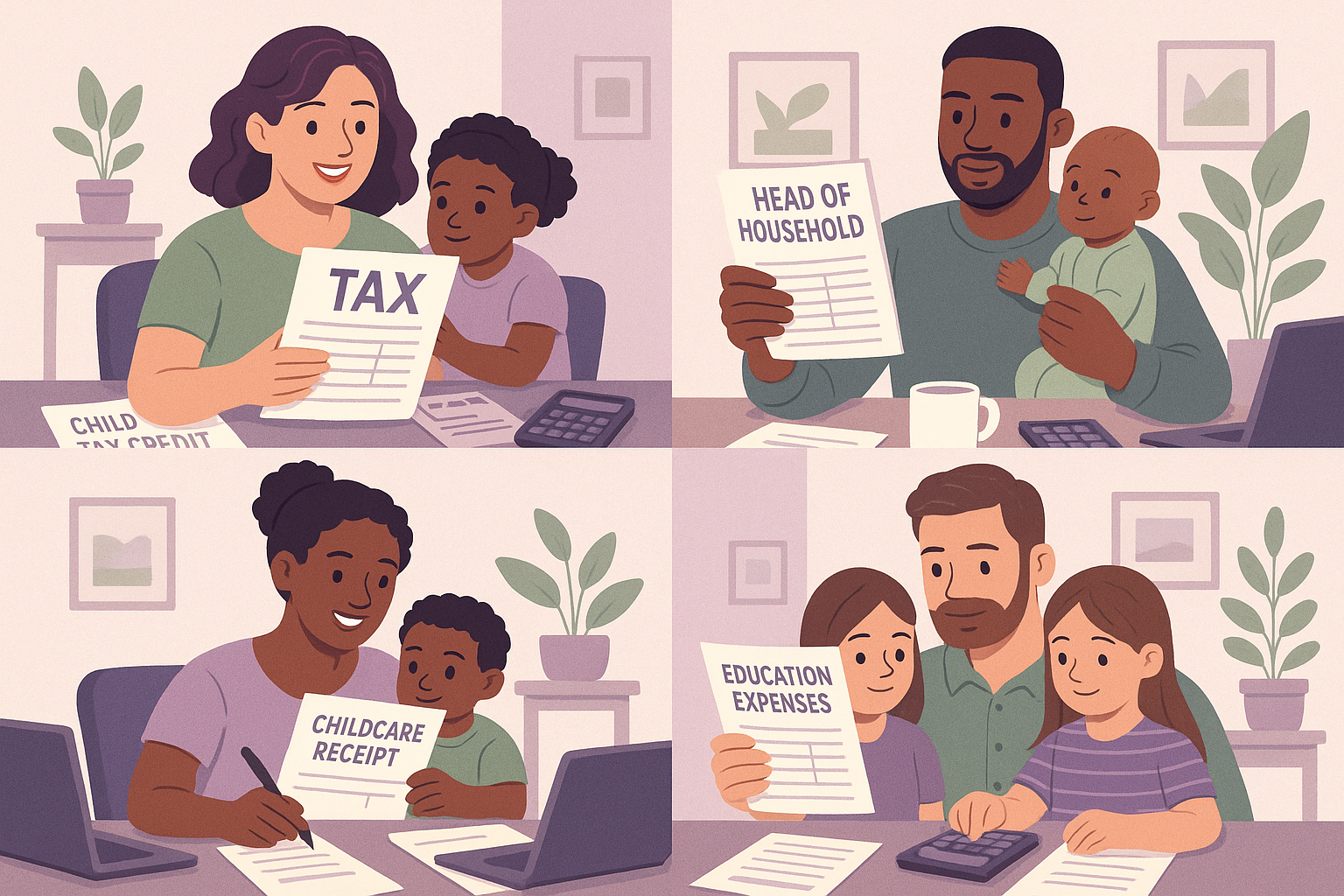 Single Parents
Single ParentsSingle-parent tax rules directly shape your financial outcome during tax season. They determine whether you maximize savings or overpay. The IRS offers targeted relief programs to support households led by one parent. Understanding these rules ensures you claim every available deduction and credit accurately.


 Seniors
Seniors A tax guide for seniors is essential because older adults face unique tax rules and opportunities after retirement. Many seniors underestimate the impact of new deductions and credits designed specifically for their age group. These provisions can significantly reduce taxable income, easing financial stress during retirement. Having a clear resource ensures older adults claim every benefit they deserve.


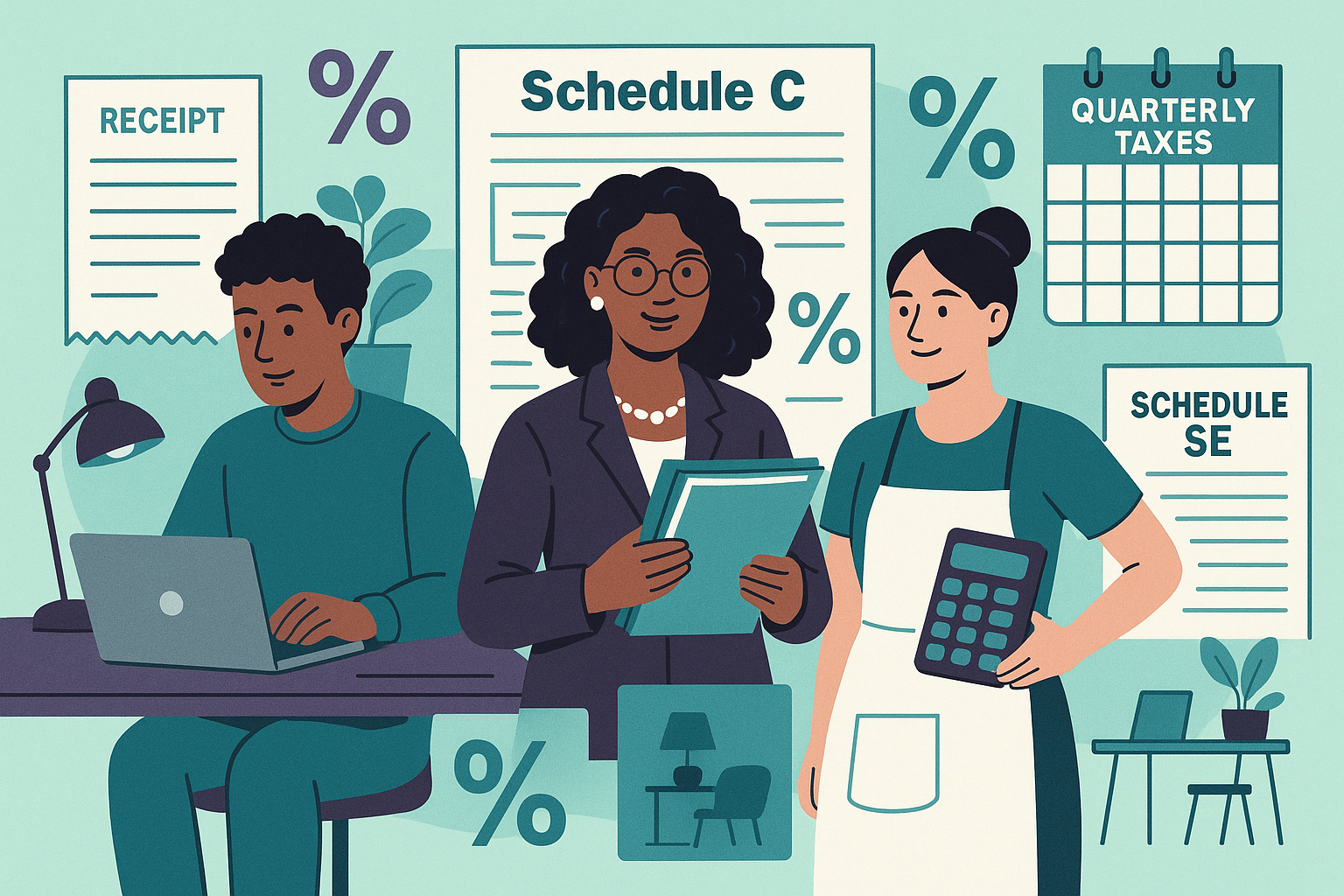 Self-Employed / Freelancers
Self-Employed / FreelancersSelf-employment allows people to choose clients, set schedules, and grow businesses on their terms. This independence allows creativity and flexibility that traditional jobs rarely provide to individuals. However, freedom also comes with managing every financial and legal detail. Taxes become one of the most important obligations for the self-employed.


 Recently Divorced
Recently DivorcedDivorce or separation transforms household finances by altering income streams, responsibilities, and legal obligations. Tax planning becomes urgent since deadlines remain strict. Recently divorced taxpayers often discover that filing status significantly changes their overall tax bracket. This adjustment can raise liabilities quickly without proper preparation.


 Real Estate Investors / Flippers
Real Estate Investors / FlippersReal estate investing creates wealth through rental income, appreciation, or flipping houses, but strict regulations govern every transaction. The IRS carefully monitors real estate investors and flippers because misreporting can distort taxable income. Each property sold or held carries unique tax implications that require proper classification. Investors who ignore these details risk costly mistakes and legal issues.


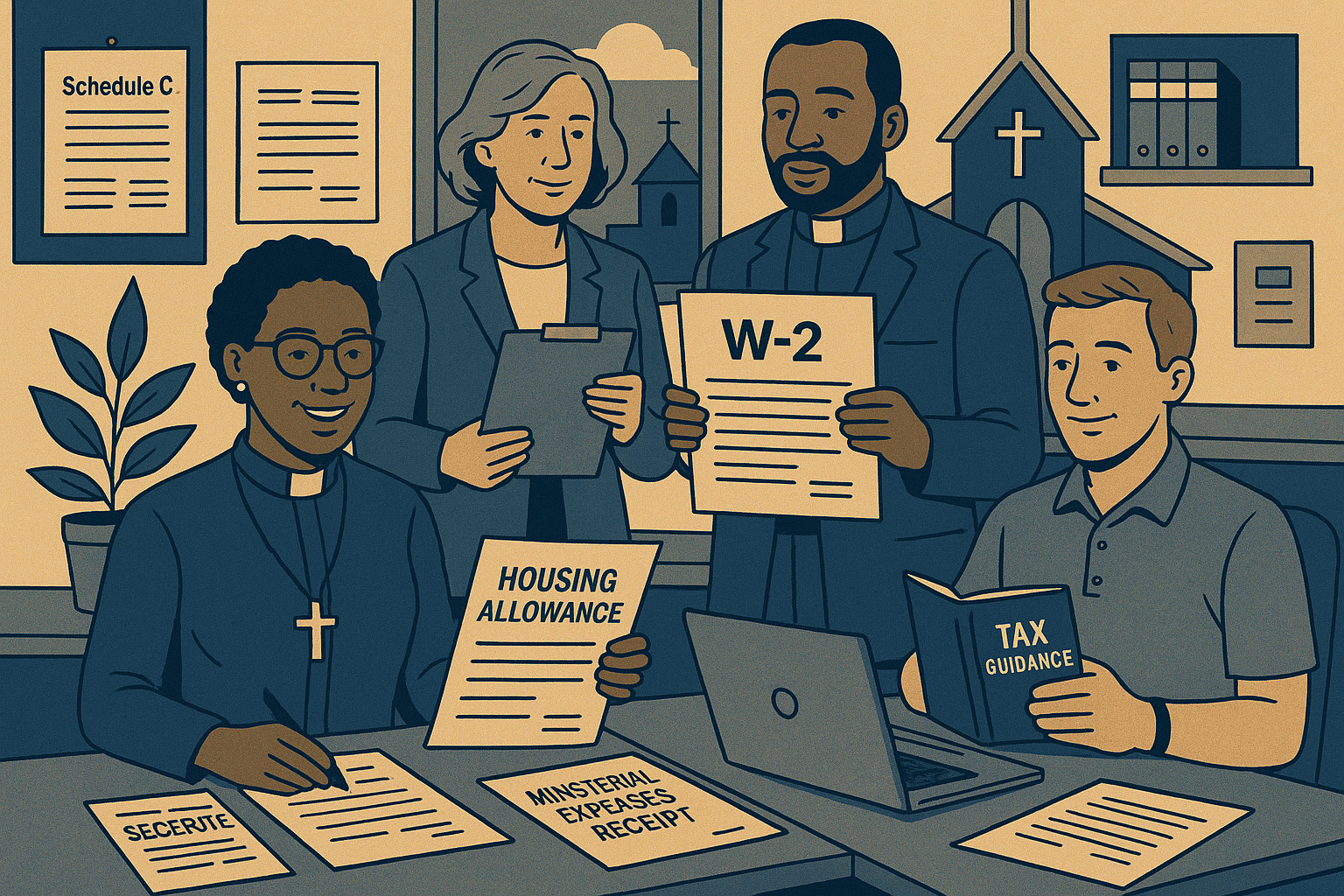 Pastors/Church Workers
Pastors/Church WorkersPastors and church workers face complex tax obligations that combine employee and self-employed rules. Clergy must balance income tax with self-employment requirements. The minister's housing and parsonage allowance reduces federal income tax but demands accurate recordkeeping. Without careful compliance, ministers risk overpaying taxes or losing valuable exemptions.


 Musicians, Performers & Freelance Writers
Musicians, Performers & Freelance WritersCreative professionals like musicians, performers, and freelance writers are classified as self-employed because they control their income streams. Unlike salaried workers, they don’t receive automatic tax withholding or employer-provided benefits, which increases their responsibility for accurate reporting. Each project, gig, or royalty payment counts as taxable income, requiring detailed recordkeeping. The IRS expects these professionals to track and report income with precision.


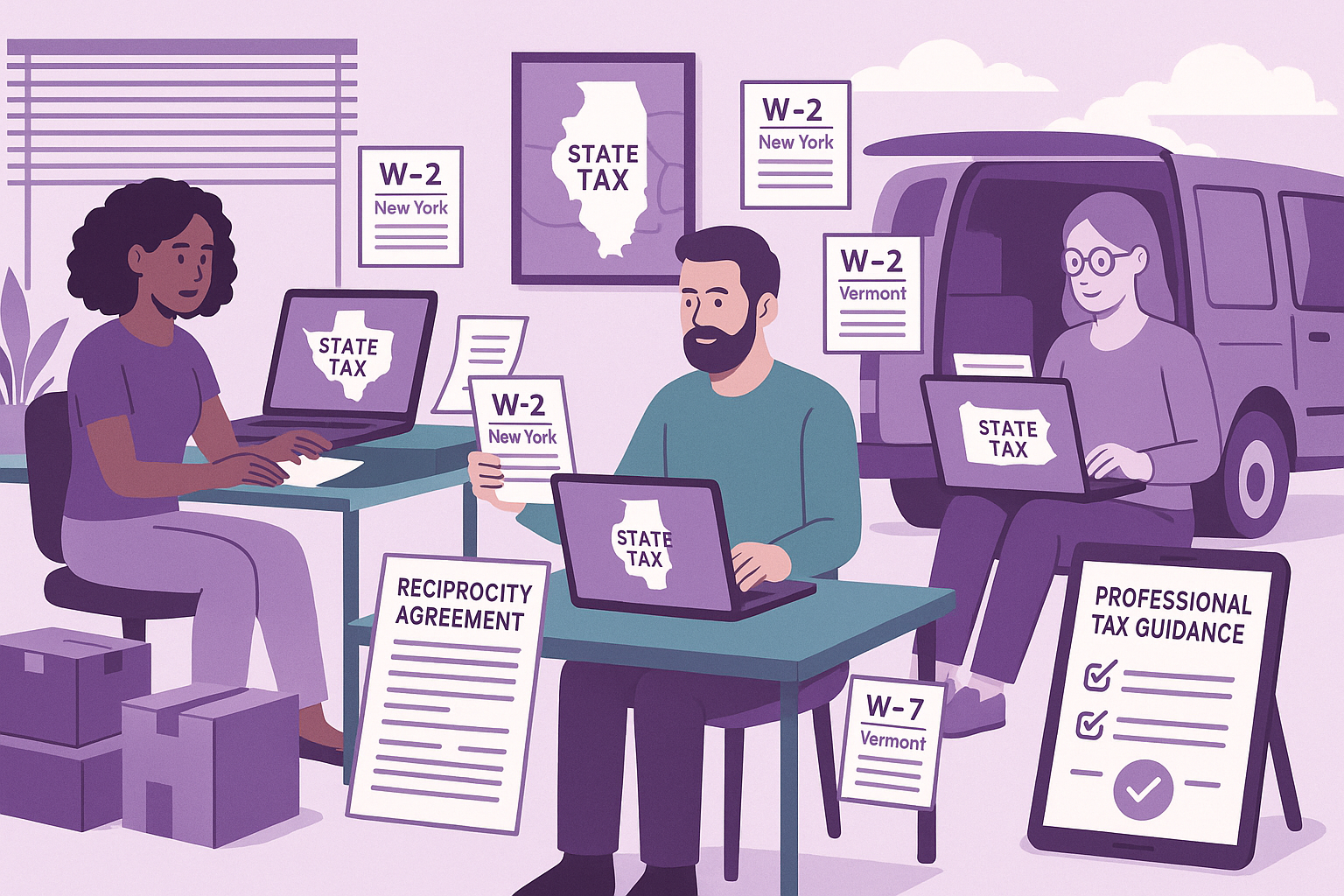 Multi-State Movers & Remote Workers
Multi-State Movers & Remote WorkersMoving across state lines complicates your tax picture because each state has unique rules for income and residency. Remote employees often face conflicting payroll taxes when employers withhold in the wrong jurisdiction. These mismatches can create double taxation if both states claim the same income. Without careful planning, taxpayers lose money and risk disputes.


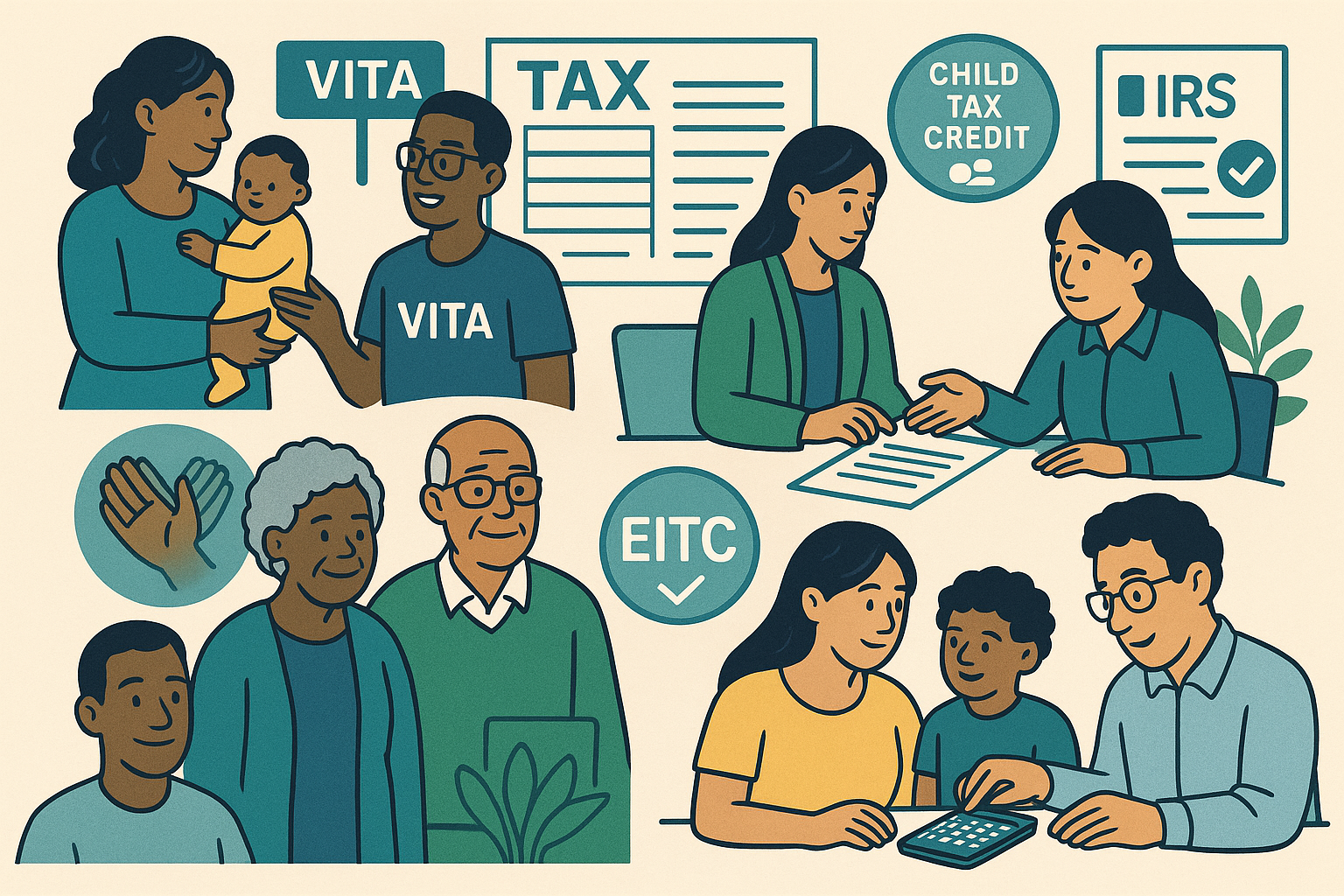 Low-Income Taxpayers
Low-Income TaxpayersLow-income taxpayers often struggle with confusing income tax rules while balancing tight budgets and everyday living expenses. They may not realize that federal tax laws provide specific credits to increase refunds for qualifying households. These missed opportunities can mean losing significant money that could support rent, food, or essential bills. Understanding obligations and available benefits is the first step toward protecting limited financial resources.


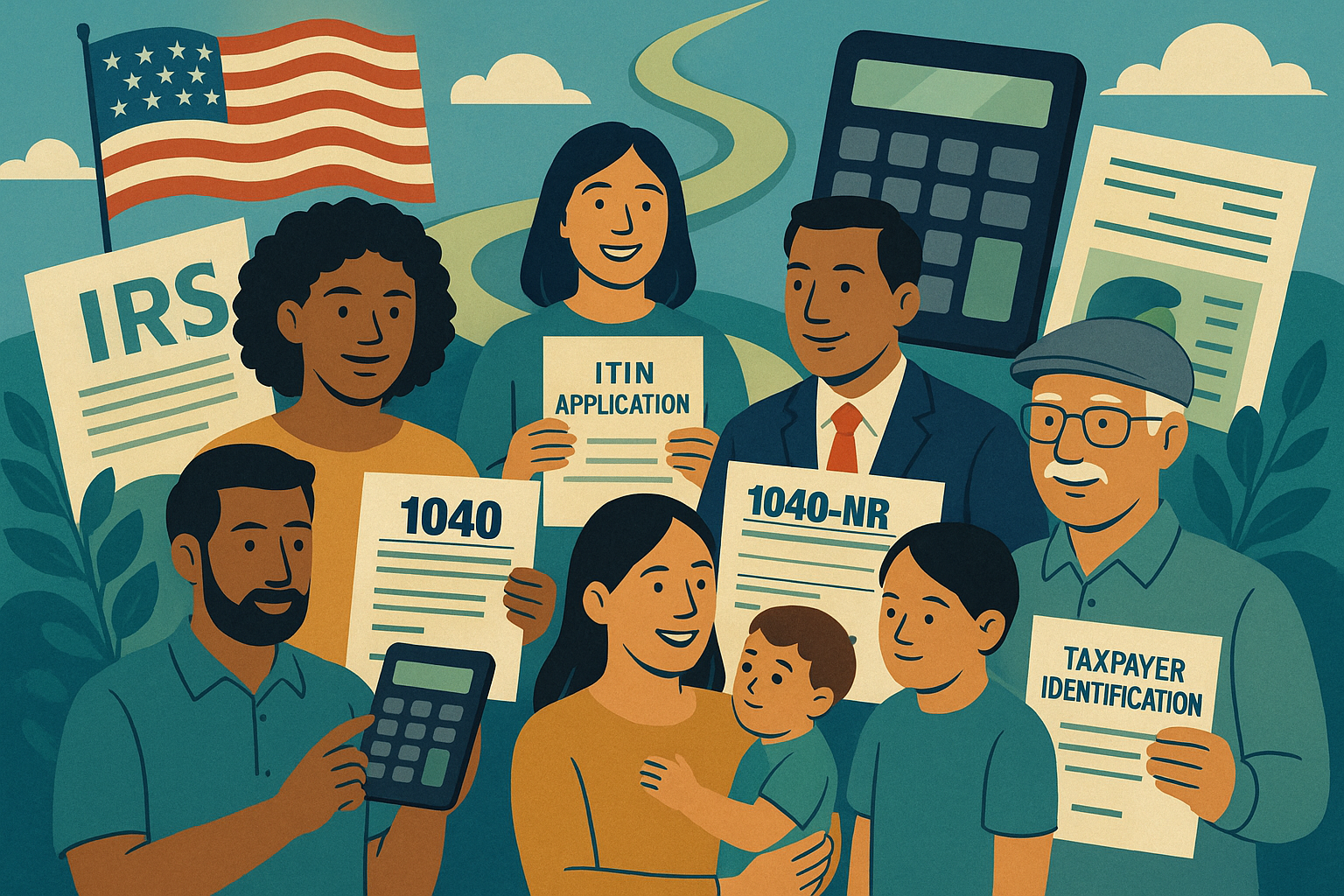 Immigrants
ImmigrantsImmigrants must understand U.S. tax obligations because taxes affect financial stability, legal compliance, and future opportunities in America. Taxes determine eligibility for certain credits and benefits, including family-related deductions. Knowing the rules helps immigrants avoid confusion and costly mistakes. A clear immigrants tax guide provides structured direction for navigating complex income tax requirements.


 Immigrant Entrepreneurs
Immigrant EntrepreneursImmigrant entrepreneurs strengthen local communities by opening restaurants, shops, and service companies that create sustainable jobs. They also introduce cultural diversity, which enriches consumer choices and fosters innovation. Many immigrant-owned businesses expand quickly, contributing significantly to regional tax bases and economic resilience. Their collective efforts build stronger, more inclusive neighborhoods that benefit immigrants and long-term residents.


 Gig Workers
Gig Workers The gig economy has transformed traditional employment by allowing workers to earn flexible income through platforms like Uber and DoorDash. Delivery drivers and rideshare workers operate independently, controlling schedules while managing their business responsibilities. Unlike employees, they handle client interactions, vehicle upkeep, and record-keeping without direct employer oversight. This independence creates unique opportunities but also introduces additional responsibilities regarding financial planning and taxes.


 Felons Returning to Workforce & Displaced Workers from Layoffs
Felons Returning to Workforce & Displaced Workers from LayoffsPeople re-entering the workforce after incarceration or layoffs face unique barriers and opportunities during job searches. A criminal record can make finding stable employment more difficult for former inmates than other applicants. Laid-off workers, meanwhile, must navigate unemployment benefits while seeking new work or training opportunities. Both groups share the goal of restoring financial stability and securing long-term careers.


 Expat Taxpayers Returning to the U.S.
Expat Taxpayers Returning to the U.S.Expat taxes can feel overwhelming when you return to the U.S. after living abroad for several years. You must navigate complex tax rules while adjusting to life back home at the same time. The IRS requires careful reporting of worldwide income, which adds extra pressure to returning expatriates. Preparation and awareness help minimize stress and avoid costly mistakes during your transition.


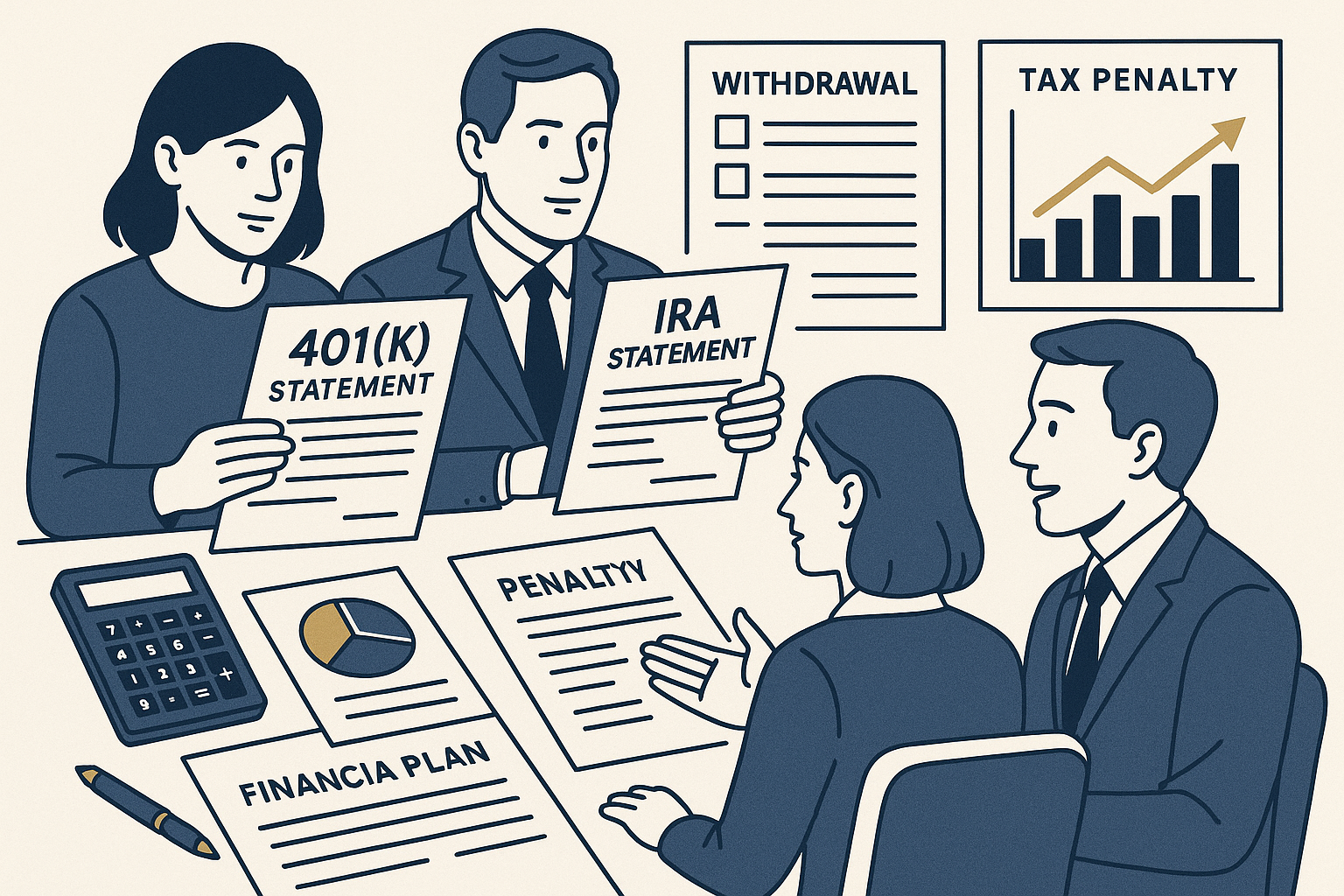 Early Retirement Withdrawals
Early Retirement WithdrawalsEarly retirement withdrawals give individuals quick access to money when unexpected expenses arise. These funds can help cover medical bills or job losses. However, withdrawing early can severely reduce long-term retirement savings and growth potential. Many taxpayers later regret the financial setback caused by early access to retirement accounts.


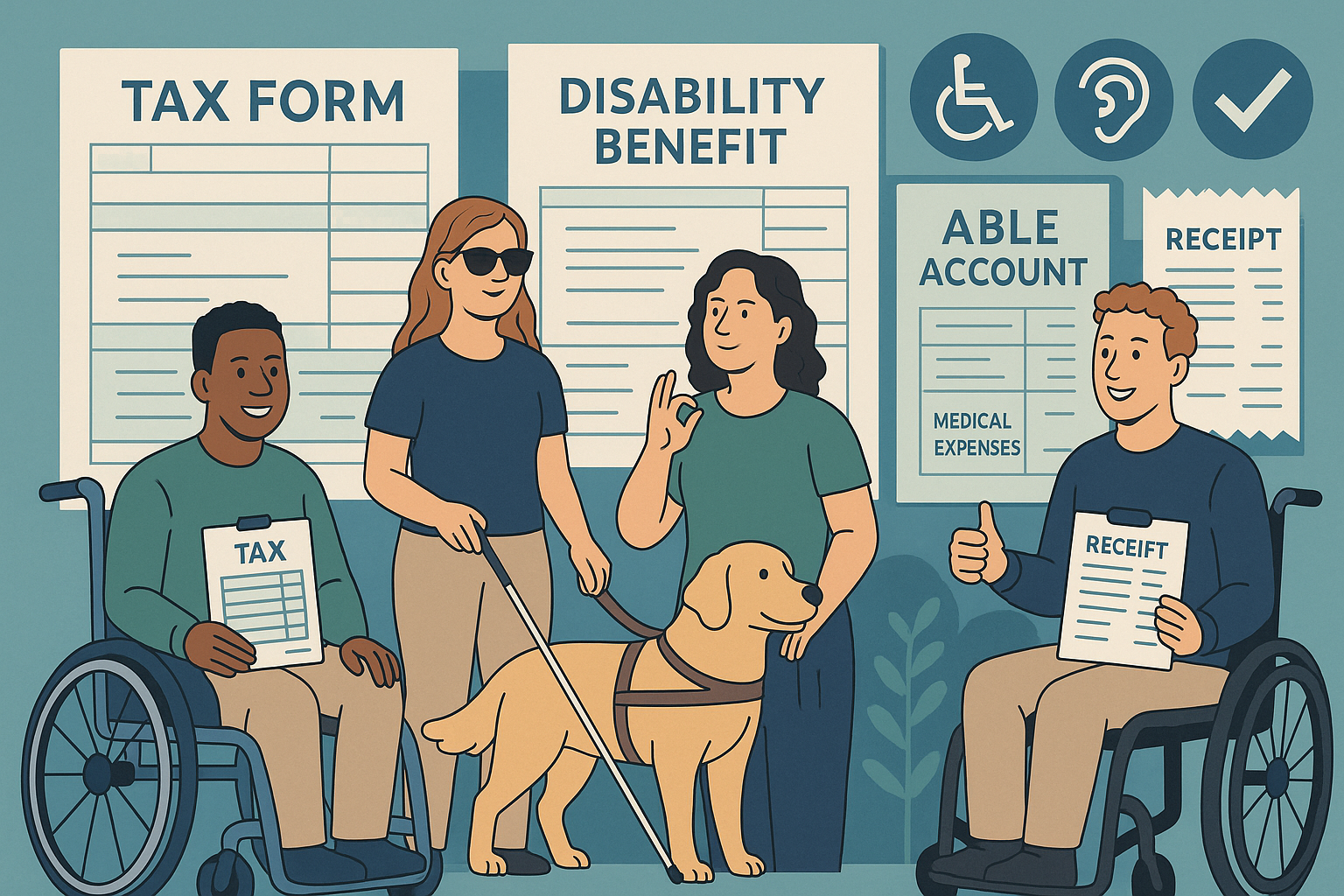 Disabled Individuals
Disabled IndividualsDisability rules create specific tax opportunities for individuals and small businesses that often remain underused without proper guidance. The IRS provides frameworks that outline how taxpayers should report disability income and related expenses. These rules directly affect eligibility for valuable deductions and credits that reduce taxable income. Without following them, individuals and businesses risk losing significant financial relief.


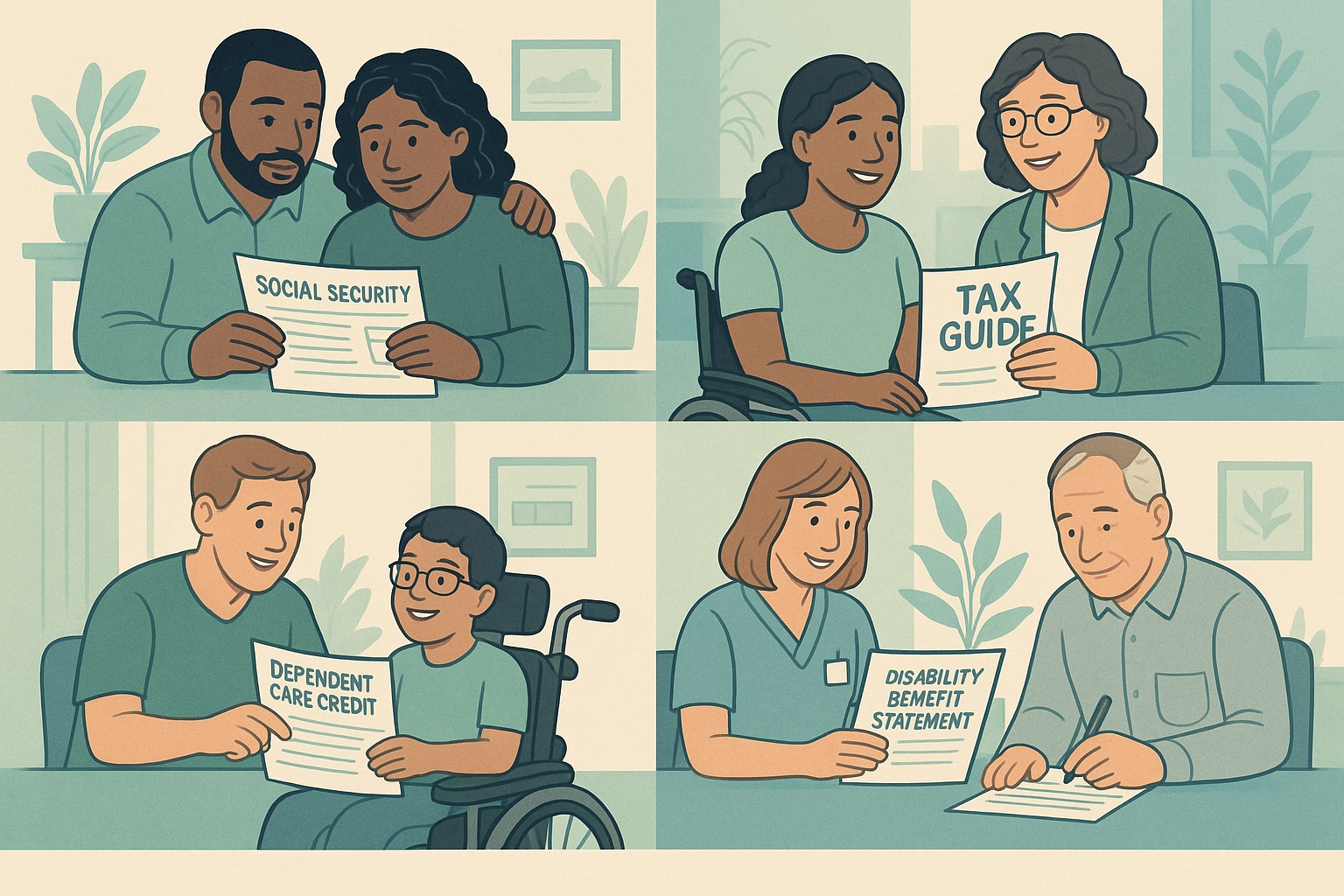 Disability Recipients & Caregivers
Disability Recipients & CaregiversDisability recipients receive financial support due to a condition limiting their work ability. Caregivers, often family members or professionals, provide daily assistance to support a loved one’s health and well-being. Their roles extend beyond personal care, including managing finances, taxes, and essential paperwork. Understanding these responsibilities helps protect both recipients and caregivers from unnecessary financial and legal challenges.


 Crypto Taxpayers
Crypto TaxpayersCrypto taxpayers include individuals and businesses that engage in digital asset transactions for investment, payments, or rewards. The IRS classifies cryptocurrencies as property, creating tax obligations similar to other investments. Each purchase, sale, or exchange of digital assets can trigger taxable events. Taxpayers must keep records of every crypto transaction to file them correctly.


 Construction Workers
Construction WorkersConstruction workers often struggle with taxes because payment methods differ from traditional jobs. Many receive 1099 forms instead of W-2s. Independent contractors must manage their own tax withholdings and quarterly estimated payments. Without preparation, these obligations can quickly overwhelm even experienced professionals.


 Barbers/Salon Owners
Barbers/Salon OwnersRunning a barbershop or salon demands strong business management alongside styling expertise. Owners must accurately track income, expenses, and deductions. The IRS requires proper documentation for every service and sale, especially cash transactions. Without consistent compliance, small errors may quickly become serious tax liabilities.


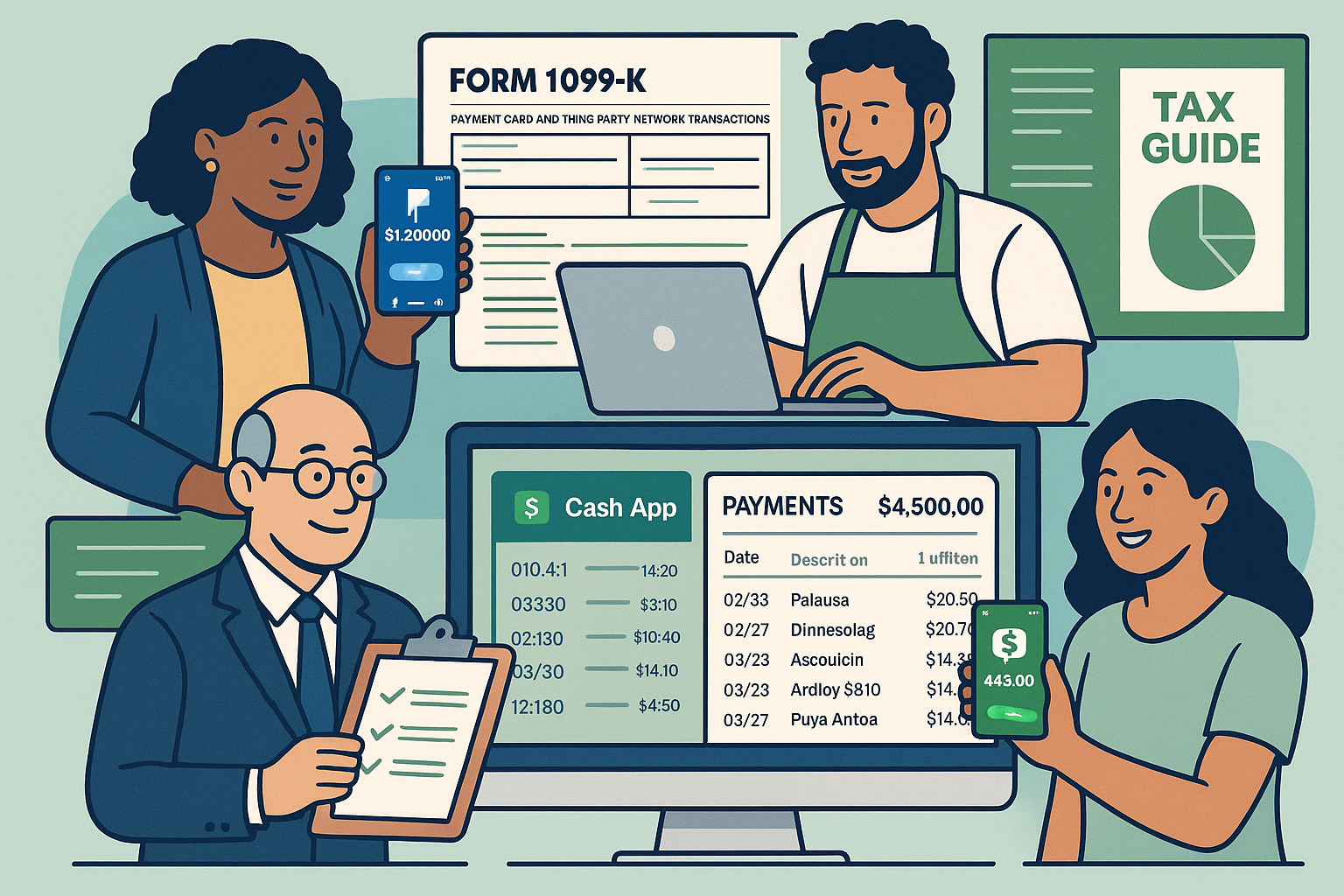 1099-K / PayPal / CashApp Income
1099-K / PayPal / CashApp IncomeThe 1099-K form is a tax document that reports payments received through third-party platforms like PayPal or Cash App. It shows the gross payment amount processed on your behalf, not just net earnings after fees. This form is issued by the payment processor, not the IRS itself. Both you and the IRS receive a copy for tax reporting purposes.


FAQS
Yes, pastors and church workers face unique tax rules, often being treated as both employees and self-employed. Relief programs like penalty abatements, payment plans, and hardship status are available. Clergy can also claim housing allowances and parsonage exclusions to reduce liability. With proper guidance, pastors and church staff can resolve IRS debt without jeopardizing essential income.
Yes, teachers can deduct classroom expenses and other work-related costs, which reduce tax liability. If balances remain unpaid, teachers may qualify for IRS relief through payment plans, penalty waivers, or settlements. Many educators benefit from negotiating manageable terms with the IRS, ensuring that out-of-pocket classroom spending does not lead to unmanageable tax debt.
Yes, single parents may qualify for Head of Household status, Earned Income Credits, and Child Tax Credits, which reduce liability. If debt has already built up, relief options like installment agreements or penalty abatements can apply. The IRS considers dependents and family living expenses when determining repayment ability, giving single parents access to more affordable tax solutions.
Barbers and salon owners in cash-based industries are at higher risk for audits. Relief programs like installment agreements or Offers in Compromise can help resolve tax debt. Properly tracking expenses for supplies, equipment, and rent reduces liability, while structured relief prevents aggressive IRS collections, allowing barbers and salon owners to keep operating their businesses smoothly.
Many construction workers are paid on 1099s, which can lead to unplanned tax debt. Relief options include payment plans, penalty abatements, or settlements. By claiming deductions for tools, safety gear, transportation, and other job-related expenses, construction workers can reduce taxable income while negotiating manageable solutions with the IRS to resolve outstanding balances and avoid collection actions.
Yes, disabled taxpayers often qualify for credits, exemptions, or hardship protection when income is primarily from disability benefits. The IRS considers limited earning capacity and medical expenses when reviewing repayment ability. Relief options may include reduced payment plans, suspended collections, or debt settlements, helping disabled individuals protect their benefits while resolving tax issues affordably.
Yes, recently divorced or separated taxpayers may qualify for Innocent Spouse Relief, separation of liability, or equitable relief. These programs remove responsibility for a spouse’s unpaid or improperly filed taxes. With proper documentation, many divorced taxpayers can eliminate joint obligations, protect their income, and prevent IRS collections for debts they should not be responsible for.
Low-income taxpayers may qualify for Currently Not Collectible status, which pauses IRS collections when income is insufficient to cover basic living costs. Other options include reduced installment agreements or penalty waivers. The IRS considers income, expenses, and family size when reviewing requests, allowing low-income taxpayers to avoid aggressive collections and focus on meeting everyday financial needs.
Yes, immigrants and ITIN filers are eligible for most IRS tax relief programs, including installment agreements, penalty reductions, and hardship protection. Tax professionals can also assist with ITIN applications or transitions to Social Security Numbers. By filing correctly and on time, immigrants can prevent penalties, resolve debt, and stay compliant with both federal and state tax laws.
Seniors often qualify for flexible repayment programs because of fixed retirement income and medical expenses. The IRS may approve reduced monthly payments, penalty abatements, or settlements through the Offer in Compromise program. In many cases, seniors can limit collections and protect their essential retirement benefits while resolving tax debt without risking their financial security in retirement.
Yes, if the IRS is reducing Social Security benefits to collect back taxes, recipients may qualify for hardship relief. The IRS reviews fixed income and living expenses before deciding repayment ability. In many cases, taxpayers can enter Currently Not Collectible status, which suspends garnishments and collections, or negotiate a minimal payment plan based on limited resources.
Yes, veterans, especially those with service-related disabilities, may qualify for unique credits, deductions, or even forgiveness programs. The IRS considers veterans’ benefits, disability income, and limited earning capacity when evaluating relief requests. Many veterans are eligible for penalty abatements, reduced repayment terms, or suspension of collections, ensuring tax problems don’t interfere with essential benefits or income.
Yes, freelancers who miss quarterly tax payments or underreport income often owe significant balances. The IRS allows relief through installment agreements, hardship status, or settlements. Accurate recordkeeping of business expenses like software, equipment, and home office costs is key. These deductions reduce liability, while relief programs provide time and flexibility to manage outstanding tax debt effectively.
Gig workers often face unexpected tax bills from 1099 income. Relief programs include payment plans, penalty abatements, and debt settlements through the Offer in Compromise program. By properly tracking expenses such as mileage, phone use, and supplies, gig workers may lower taxable income and negotiate manageable repayment options with the IRS to reduce overall liability.
Truck drivers can often reduce debt by claiming deductions for fuel, maintenance, meals, and lodging. Filing Form 2290 correctly is essential to avoid penalties. If debt has already accumulated, relief options like payment plans, penalty abatement, or Offers in Compromise can help drivers settle their tax obligations affordably while keeping their licenses and operations protected.